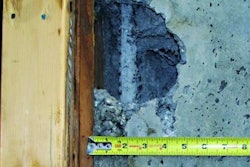On Nov. 21, the Joint Select Committee on Deficit Reduction announced they had failed to come to bipartisan agreement on deficit reduction measures. The super committee’s failure means that $1.2 trillion in automatic cuts known as “sequestration” will take place in 2013. The more immediate impact of the committee’s failure is Congress must now deal with several issues that were assumed to be addressed in the deficit reduction plan.
The super committee was tasked with cutting $1.2 trillion out of about $45 trillion in federal spending over the next ten years. Their failure perpetuates government-inspired instability in the construction market. There is no real long-term plan for orderly spending prioritization and/or spending cuts. There is no clarity to long-term tax policies that impact capital formation and capital investment. There is no plan for the long-term government programs for capital investment like transportation, buildings, water and military.
In addition to creating the super committee, the Budget Control Act created a process to enact budget cuts regardless of the committee’s outcome. The cuts totaling $1.2 trillion will come from defense ($450B), non-defense ($300B) and entitlement programs ($170B) starting in 2013. According to the Congressional Budget Office, as a percentage of defense spending, nothing will be cut more than 10 percent.
The failure of the super committee will alter the Congressional agenda for the remainder of 2011 and the beginning of 2012.
Congress must now deal with expiring provisions and programs that were put on hold while the super committee deliberated their plan. These issues include extension of the payroll tax cut, extension of unemployment insurance, Medicare “doc fix” payment adjustment, energy tax credits, credits for depreciation on capital investments, Alternative Minimum Tax relief which all may be wrapped up into a tax extenders package.
In addition Congress must now focus on finishing efforts to fund the government for the fiscal year that began Oct. 1 and decide how to approach infrastructure spending authorizations such as water, aviation and surface transportation that were thought to be addressed by the committee’s final package.
Super Committee Fails: Where Automatic Cuts Will Come
Super Committee Fails: Effect on Taxes
Super Committee Fails: Effect on Infrastructure Spending
Super Committee Fails: Changes to Today's Congressional Agenda



















